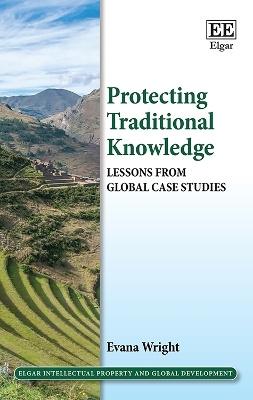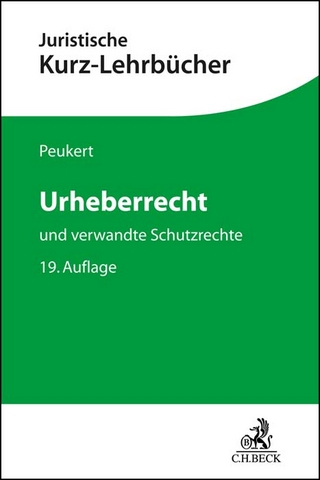
Protecting Traditional Knowledge
Lessons from Global Case Studies
Seiten
2020
Edward Elgar Publishing Ltd (Verlag)
978-1-78897-884-2 (ISBN)
Edward Elgar Publishing Ltd (Verlag)
978-1-78897-884-2 (ISBN)
Protecting Traditional Knowledge examines the emerging international frameworks for the protection of Indigenous traditional knowledge, and presents an analysis situated at the intersection between intellectual property, access and benefit sharing, and Indigenous peoples’ rights to self-determination.
Protecting Traditional Knowledge examines the emerging international frameworks for the protection of Indigenous traditional knowledge, and presents an analysis situated at the intersection between intellectual property, access and benefit sharing, and Indigenous peoples' rights to self-determination.
Drawing on the experience of India and Peru, the author identifies lessons that may be used by Indigenous and local communities in making decisions regarding the protection of traditional knowledge. Using these two key case studies, the book argues that a sui generis regime based on principles of self-determination, prior informed consent and mutually agreed terms may empower Indigenous and local communities and act as a form of corrective justice.
This informative and accessible book will be a valuable resource for Indigenous and local peoples as well as scholars of intellectual property law, Indigenous knowledge systems and international environmental law. It will also be of interest to readers working in policy development, governance, law and international development, human rights and the rights of Indigenous and local communities.
Protecting Traditional Knowledge examines the emerging international frameworks for the protection of Indigenous traditional knowledge, and presents an analysis situated at the intersection between intellectual property, access and benefit sharing, and Indigenous peoples' rights to self-determination.
Drawing on the experience of India and Peru, the author identifies lessons that may be used by Indigenous and local communities in making decisions regarding the protection of traditional knowledge. Using these two key case studies, the book argues that a sui generis regime based on principles of self-determination, prior informed consent and mutually agreed terms may empower Indigenous and local communities and act as a form of corrective justice.
This informative and accessible book will be a valuable resource for Indigenous and local peoples as well as scholars of intellectual property law, Indigenous knowledge systems and international environmental law. It will also be of interest to readers working in policy development, governance, law and international development, human rights and the rights of Indigenous and local communities.
Evana Wright, University of Technology Sydney, Australia
Contents: 1. Traditional Knowledge: Why and how should we protect it? 2. Biopiracy: Shared history, different approaches 3. Institutions and funds 4. Access and benefit sharing 5. Databases and registers 6. Lessons from case studies Bibliography Index
| Erscheinungsdatum | 31.12.2019 |
|---|---|
| Reihe/Serie | Elgar Intellectual Property and Global Development series |
| Verlagsort | Cheltenham |
| Sprache | englisch |
| Maße | 156 x 234 mm |
| Themenwelt | Recht / Steuern ► EU / Internationales Recht |
| Recht / Steuern ► Wirtschaftsrecht ► Urheberrecht | |
| Sozialwissenschaften ► Ethnologie | |
| Sozialwissenschaften ► Soziologie | |
| ISBN-10 | 1-78897-884-6 / 1788978846 |
| ISBN-13 | 978-1-78897-884-2 / 9781788978842 |
| Zustand | Neuware |
| Haben Sie eine Frage zum Produkt? |
Mehr entdecken
aus dem Bereich
aus dem Bereich
Gesetz gegen den unlauteren Wettbewerb, Preisangabenverordnung, …
Buch | Softcover (2024)
dtv Verlagsgesellschaft
16,90 €
Textausgabe zum deutschen, europäischen und internationalen Patent-, …
Buch | Softcover (2023)
dtv Verlagsgesellschaft
17,90 €


